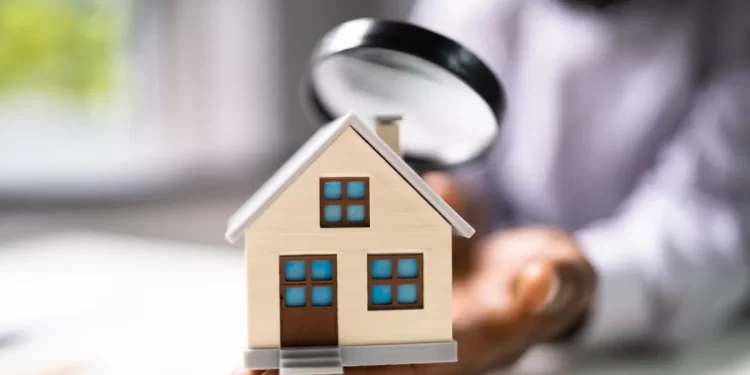What if you buy a house and find out any problems after purchase? There are various reasons to have your property inspected before buying it. Check out the article highlighting why Home Inspections are important in detail.
What is Home Inspection?
The evaluation of a property’s quality and safety before it is sold is called a home inspection.
The property’s structural integrity is inspected with its functionality.
The plumbing, electrical, water, and sewage systems, and heating and air conditioning systems, are all inspected by the inspector.
Here are important factors of inspection:
Exterior: The assessor will look for cracks, missing siding, and roof problems – anything that could cause water damage or pest invasion. Examining the base to see if it is exposed is part of this.
Interior: Just as the outside, the inspector will search the room for any indications of damage to the windows, cupboards, walls, or other visible features of the house.
Plumbing: The obvious leaks, working shower heads, faucets, and toilets, as well as making sure that any exposed pipes are in good condition and are not dangerously old are examined.
Electrical: The examiner checks that ground circuit interrupters are operational, tests each outlet, and looks for any possible problems with the electrical panel or wiring.
Air: The HVAC system and ductwork are in good condition and to ensure that both your air conditioner and furnace (if applicable) are operational.
Fire Safety: Home inspectors test the smoke detectors, and they will note any possible fire hazards.
Check out RERA’s guidelines for safe home buying that highlight Why Home Inspections Are Important.
What Instruments Are Used In Home Inspection?

A home inspector who does not have the right equipment or instruments cannot do their work well.
Here are list of instruments used in home inspections,
- Multimeters
- Thermal Cameras
- Water Pressure Gauge
- Moisture Meter
- Bore Hole Camera
- TDS & PH Water Tester
- Inclinometer
- Clamp Meter
- 360 Degree Camera
- Soft Faced Mallet
Why Home Inspections Are Important?
Important information regarding the condition and features of the house can be discovered with a high-quality home inspection service.
This will inform the prospective buyer of the high costs that the house will need to pay now or in the future.
These are 10 good reasons that will make you not skip home inspection.
Home Inspection is done in the following cases
- While taking Possession of a New Flat from the Developer
- Before Purchase of Resale Flat
- Before the Tenant takes Possession
- Before you want to Get the Renovation Done
- During the Construction Phase to Monitor the Quality
- Post Renovation to Ensure the work is completed as per Recommendations
1. Know Property Condition In Detail
Home Inspections help in determining how much extra money homebuyers need for repairs of their property. They may choose how much money they will spend and how much work they can do.
All of this will be done to restore their property to a condition that they are comfortable with.
If buyers are not willing to make repairs for things like broken gutters, crumbling walls, and ceilings, they may not be prepared to purchase the home. And they can therefore carry on with your house-hunting.
2. Ensuring safety
One useful technique for finding problems like mold, radon, and carbon monoxide in a house is a home inspection.
Testing your home for these problems is crucial.
If these risks are identified, you can back out of the agreement as stated in your house purchase agreement.
3. Uncover Hidden Issues
It is an excellent tool for determining whether the housing areas were built in violation of the code or without the required permissions.
The rooms, modified garages, and basements are some of the main areas of the house that will be grouped here.
The insurance coverage, usability, and tax implications of unpermitted room expansions to your home will be impacted.
Simultaneously, the entire value will have the biggest impact.
It will more closely resemble purchasing something that isn’t real.
Even newly constructed homes with non-code systems will provide financial challenges for first-time homeowners.
4. Save Money
By investing the time to do a thorough home inspection, you can be sure the house you’re considering is free of major flaws and ready to move into.
It gives you a complete idea of flaws in the property and allows you to save money by having the negotiation bill.
5. Planning Repairs & Maintenance
A house inspection will reveal what needs to be fixed if repairs are necessary. Sometimes purchasers decide not to use the inspection emergency funds, but they nevertheless request an inspection for informational purposes.
This allows them to allocate funds where necessary before minor issues become major ones and to remain aware of what they are getting.
6. Evaluate investment
A house’s appearance can sometimes be misleading. Sellers are skilled at making a house appear to be in excellent condition.
However, it can be difficult to see some of the major fixes. A qualified inspector will examine everything and assist you in determining what requires the greatest care.
One is not always required when submitting a loan application. But, you cannot skip the need for a home inspection if your lender demands an evaluation. Additionally, your property agent might advise an inspection.
If they believe the seller won’t otherwise resolve issues before closing, they might take this action.
For both older and newer properties, home inspections are helpful. In addition to electrical and appliance problems, older homes may have problems with the roof and foundation. Problems might arise in even a brand-new house.
Furthermore, a house inspection can verify that the contractor performed the work accurately and how much money is required for the overall purchase.
7. Negotiating Property Price
You might ask for repairs, a seller credit, or a decrease in the asking price based on the findings of the house inspection report.
In this instance, collaborate with your realtor. They may assist you in comprehending what demands you ought to and can make to bargain for a higher price.
8. Increase Marketability
A home inspector can provide an assessment of the main components in a house’s installation age. These main systems include HVAC, plumbing, and vital appliances like water heaters.
They can ascertain and reveal the structure’s present state. They can afterward provide you with the duration of finishes in the house. Every part of the house has a “shelf-life.”
The greatest house inspections can help you determine when they need to be replaced.
You can use this to assist you in making wise budgetary decisions.
Additionally, it will advise you on the kinds of warranties and house insurance to get.
All this information and understanding increases the market value of your property.
9.Get Maximum Property Price Appreciation
You can avoid future expensive repairs by identifying small problems earlier they become major ones.
Over time, routine maintenance and inspections can help sustain or even raise the value of your house.
10. Reduce Liability
Regardless of where you buy, houses cost a lot of money. It might calm your mind to know that such a large expenditure is in excellent condition.
This is particularly valid if you don’t have any money set up for repairs.
For a time, a house inspection can guarantee that everything substantial is in good condition.
FAQs
1. Is it necessary to have home inspection?
Although not usually required, a house inspection is strongly advised for all buyers. It gives buyers important details regarding the state of the property, enabling them to make wise choices.
2. What benefit does home inspection offer?
Inspections provide the information you need to identify and quantify patterns in equipment malfunctions in the property. Inspections can reveal operational faults, wiring defects, and mold problems.
3. What is the cost of the house inspection?
The buyer is typically in charge of scheduling and covering the cost of the house inspection. Nonetheless, during the offer negotiating phase, it is negotiable amongst the seller and the buyer.
4. What steps are involved in a house inspection?
A property inspection is a thorough evaluation of the health of the homeowner carried out before the rental purchase agreement is signed. Buyers are safeguarded in the event of unforeseen property issues.






